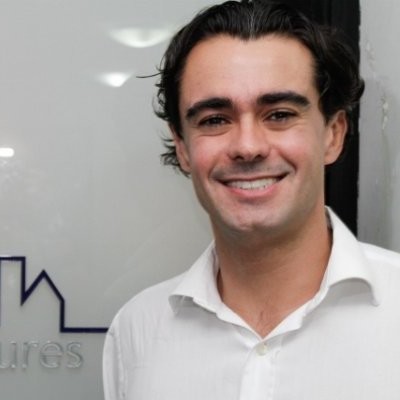1Mby1M Virtual Accelerator Investor Forum: With Francisco Jardim of SP Ventures (Part 1)

Responding to a popular request, we are now sharing transcripts of our investor podcast interviews in this new series. The following interview with Francisco Jardim was recorded in November 2019.
Francisco Jardim is Founding Partner at SP Ventures, a Brazilian firm focused on AgTech in Latin America. We learned a lot about what’s happening in the sector and the region.
Sramana Mitra: Tell us a bit about SP Ventures.
Francisco Jardim: SP is short for Sao Paulo – the financial services, industrial, and technology capital of Latin America. We founded the company here originally with the intent of building out the venture capital industry and replicating the Silicon Valley venture capital playbook.
We were agnostic and early-stage focused. We raised a $10 million fund in 2007, which we deployed in eight companies. Much to our surprise, four were in the agricultural sector. None of us expected us.
We expected to have a Silicon Valley-oriented portfolio. Much to our surprise, agriculture just stood out. We really started to do some soul-searching to understand why we were having so much deal flow and investment in agriculture.
There are a few things that have become mainstream in the global VC industry over the past three or four years. We kept seeing these fundamentals in AgTech back then. The rest of the venture ecosystem was pretty much shying away and not believing in the AgTech opportunity.
What were these fundamental things that led the firm to become an AgTech-exclusive fund? First of all, whether you’re reading a research report from McKinsey or from the Food & Agriculture organization in the UN, the numbers were uniform until 2015 driven by global population increase and emerging markets demanding more animal protein.
There was going to be 60% to 80% additional demand in food. The plan was to produce 60% to 80% more food in order to meet this demand.
Secondly, if you look at the five or six regions in the world that could feed this growing population – Europe, Canada, US, Argentina, Brazil, Australia – Brazil and the greater tropical ecosystem of Brazil which includes Bolivia, Paraguay, and Colombia is by far the best positioned to increase production both in new farmland and increased productivity.
Both of these factors meant that there was going to be a radical increase in adoption of technology. The third thing that stood out was when you compare our region, we have only tropical agriculture. We have two to three harvests a year contrary to temperate agriculture where you have one to one and a half.
We don’t have biological activity being frozen over during winter. We can produce all year long. It’s a very different type of agriculture. We have soil variabilities and micro-climate variabilities. The human capital that works the farm is very different. The infrastructure is very different.
What does this translate to? It means that we demand native solutions. What is being developed in Tel Aviv or Silicon Valley doesn’t work over here. It has to be redeveloped and recalibrated. We always believe local entrepreneurs tackling local native problems are going to have a big competitive edge.
Brazil was already the second biggest food producer in the world. We had a barrier to entry because of our tropical characteristics. We wanted to build out some big local tech companies that are solving these big bottlenecks to guarantee global food safety in a sustainable fashion.
This segment is part 1 in the series : 1Mby1M Virtual Accelerator Investor Forum: With Francisco Jardim of SP Ventures
1 2 3 4 5
Featured Videos
Can 1M/1M Help Me Raise Money?
How Does 1M/1M Democratize Entrepreneurship Education?
How Does 1M/1M Democratize Management Consulting?
When Is The Right Time To Join 1M/1M?
Can 1M/1M Help Me With Business Development?
Can 1M/1M Help Me With Market Sizing?
Can 1M/1M Help Me Validate My Product?
Will I Have Private 1-on-1 Sessions In 1M/1M?
How Does 1M/1M Help Entrepreneurs Connect With Silicon Valley?
Mentoring or Consulting?
Why Does 1M/1M Charge $1000 a Year?
Why Does 1M/1M Partner With Local Organizations?
Why Don\’t Mentoring Networks Work?
Why Is It Important To Study With 1M/1M Now?
Dan Stewart Story
Vikrant Mathur Story
